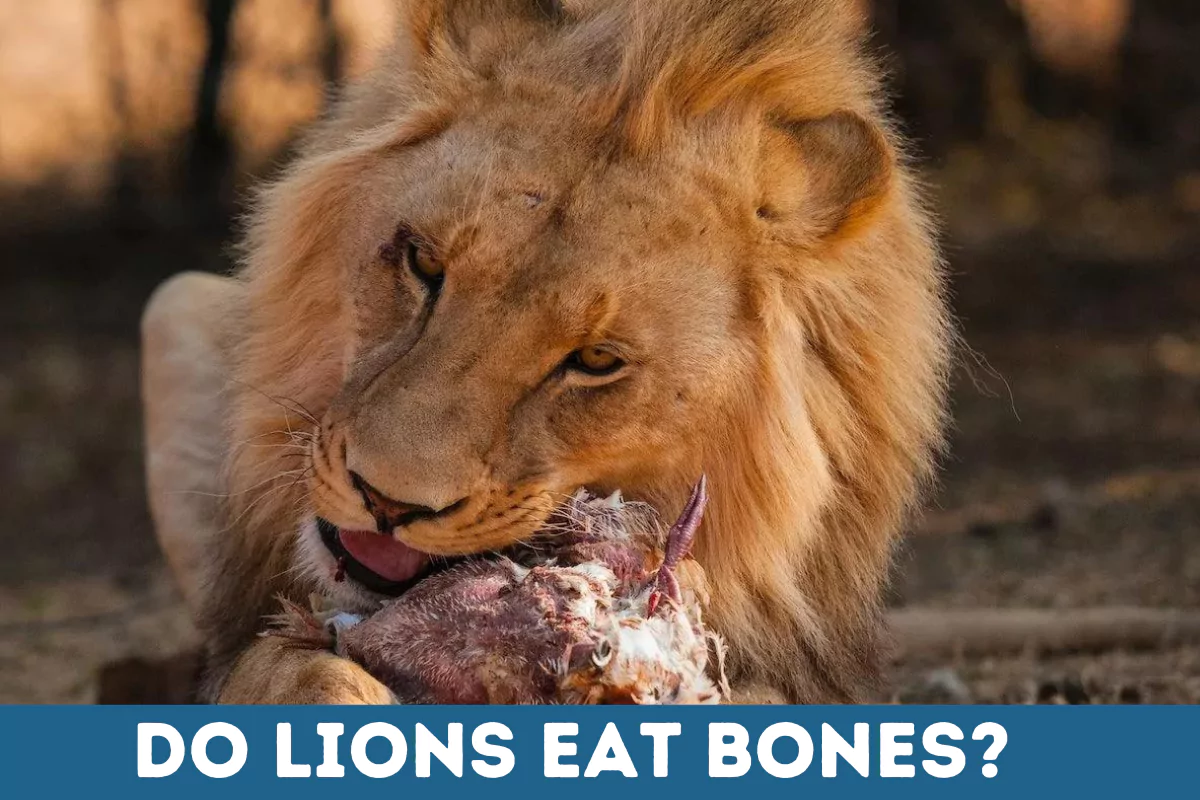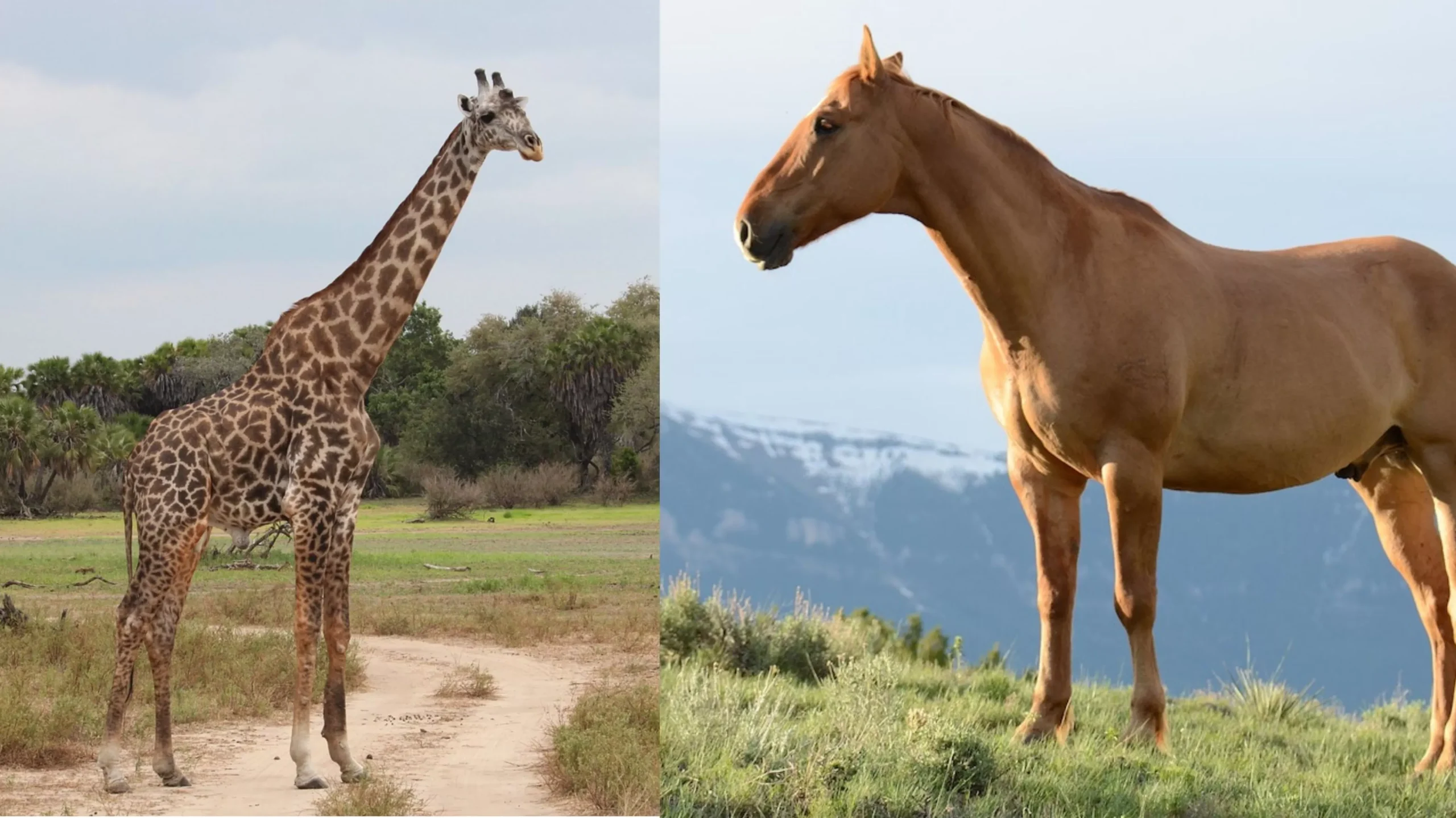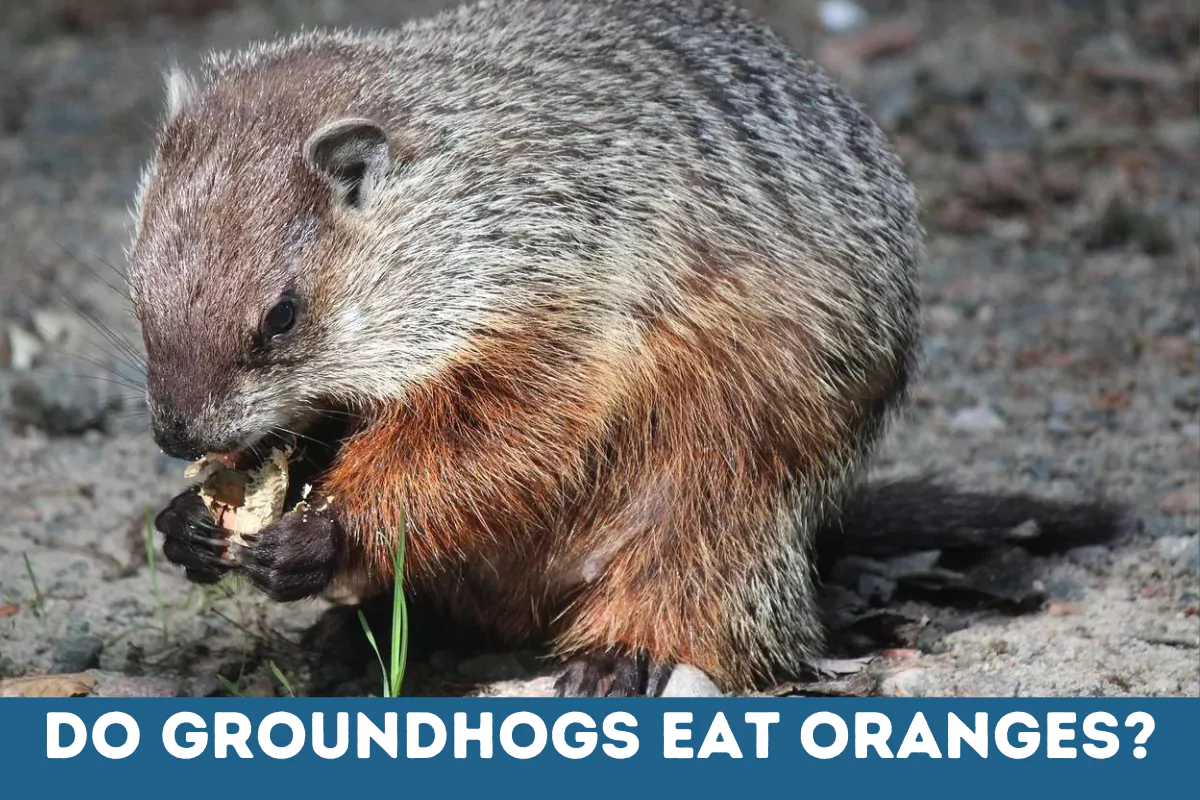Although some bizarre dietary specialisms exist in the animal kingdom, eating bone is still relatively unusual and lesser known to many of us.
As we see lions are the most ferocious and powerful beasts, we often doubt and question their diet and eating habits like “Do lions eat bones of their prey?” And if they do, can they digest the bones? etc. Along with answering these questions, let’s also learn about something called Osteophagy in this article.
Do Lions Eat Bones?
All big cats have stronger jaw muscles and can eat some of the bones of the prey they eat (they will just crush the bones to get the marrow in them). But you can see that they will gorge on internal organs first and then flesh.
Lions, which are known for their strength and attitude, often gorge themselves first on the gut and internal organs. This is probably due to their importance to their nutritional requirements in providing both fat and vitamins found in and around the gut.
They go back to the carcass at the last to feed on it some more. Very little remains of the prey will be found after a lion finishes his meal.
Can Lions Digest Bones?
As carnivores’ body is built differently so that eat can eat and digest meat, lions usually don’t have any problem with it. Also, raw bones are much easier to break down in digestive juices in the gut than cooked bones.
Large cats, like lions, absorb calcium and other nutrients as the bones pass through the digestive tract, and the remainder of the bone is passed and excreted.
Also Read: Do Lions Eat Fish? Can They Hunt Fish?
Do Lions Eat Bones In Captivity?
For Captive Lions, bones are also a common element in their menu. They are provided several times a month to lions as treats. Generally, they will be single big and fresh bones of cows or bones of their choice, depending upon their availability.
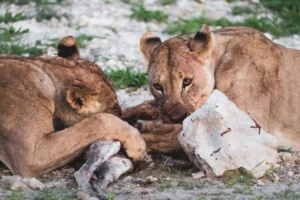
How Do Lions Eat Mammals Bones?
After hunting its prey, a lion usually seeks a place to sit and enjoy a slow meal unless there is a group of lions to share with.
However, it will be vigilant before it sits for a meal. The male lion will first observe the surrounding environment to see if there are other predators nearby, as these animals can come to snatch their prey.
When the lion has eaten its fill, it will often leave the kill to go rest, and then other animals (jackals and hyenas) will take it over. So will vultures and other birds, and eventually, insects will attack the carcass. That’s the food chain at work!
But mountain lions (pumas or cougars) will often try to scrape leaves and twigs over the kill so it will be hidden from other predators. So that they can come and feed on it later.
Also Read: Do Lions Eat Cats? Would A Lion Eat A Cat?
Do Mountain Lions Eat Bones Of Their Prey?
When a mountain lion feeds on a deer carcass or on any animal’s, if that matter, many of the largest bones in the body will be crunched and consumed, partially or entirely. They even consume vertebrae, femurs, pelvis, skulls, and scapulae.
Mountain lions use their carnassial teeth to crunch and shatter large bones and eat them along with the nutritious marrow inside. When mountain lions feed on fawns, in most cases, nothing remains but fur and a couple of molars.
What Is Osteophagy?
Osteophagy is the practice of consuming bones, usually by herbivorous animals. This is done to balance the phosphate in their body.
Phosphate is one of the vital minerals for animals and plays its role in many key functions like skeletal formations and strengthening, protein synthesis, cell signaling, and lactation. Even giraffes, bulls, and goats do this.
But due to the difference in their tooth structure, generally, they tend to chew old, dry bones that are easier to break, while carnivores prefer to chew softer, fresh bones.
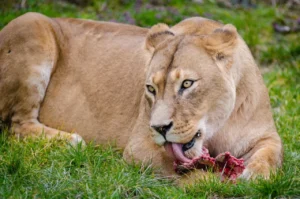
What Animals Eat Bones? And How Do They Do It?
To start with, Hyenas are famed for their bone-cracking jaws and the ability to eat everything and anything from their prey’s body. But bone only constitutes a small part of their diet.
Another true ‘bone eater’ is the Lammergeiers (aka bearded vultures). These vultures have behavioral and anatomical adaptations that allow a diet of up to 90% bone. They are able to carry bones that weigh half as much as they do.
As these birds don’t have teeth, they have a technique to break the bones. They fly very high using thermals and drop them from such a long distance to smash them on the rocks below. These birds train themselves for several years to master this skill.
Bearded vultures have an extra-long intestinal tract to help the lammergeiers digest bone, as does their gastric acid, which has a pH of about 0.7, close to pure hydrochloric acid.
As we discussed above, even many herbivore species, including giraffes, practice Osteophagia to obtain crucial minerals (such as calcium and phosphate) that are missing from their regular plant diet.
Also, Polychaete worms (marine annelid worms) in the genus Osedax are known to digest the fat and bone of dead whales. They are commonly referred to as bone-eating worms.

